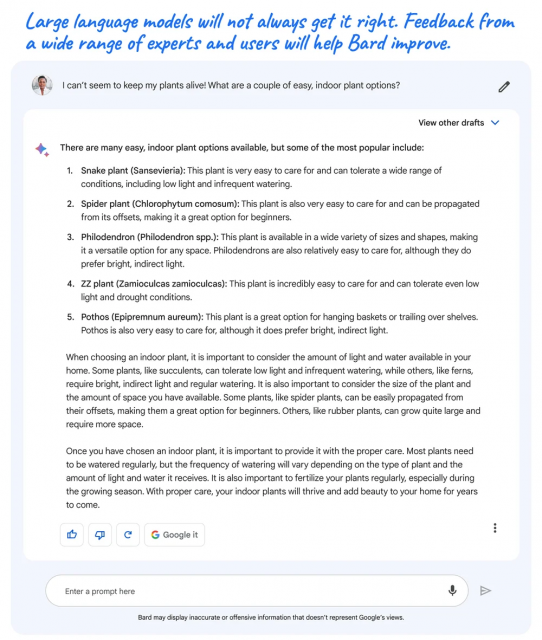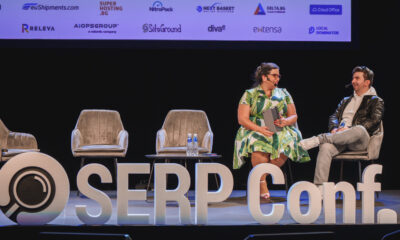SEARCHENGINES
Google Begins Slow Rollout Of Google Bard

Yesterday, Google began to slowly roll out Google Bard to some initial reporters and also Google opened up a waitlist to users in the US and UK. I personally gained access to Bard after writing most of this article but I did gain access to Bard yesterday at 1pm ET. But you can sign up for the waitlist at bard.google.com (it does not yet work with Google WorkSpace accounts).
Below you will find out more information on how Bard looks, how it works, how the citations/sources work, limitations, early impressions and more. There is a lot here – and it is super early.
My early impressions is that Google is clearly positioning Bard to be very different from Google Search. In addition, Google is also making sure Bard feels and works differently than Bing Chat. Bing Chat, to me, feels way more thought out in terms of the user experience and all the tiny details in how it works with Bing Search. Google is making it super clear right now that Bard is not Search and only putting a “Google It” button in the Bard results so that you are taken out of Bard and into Search.
Bard does not do a lot of what Bing Chat and ChatGPT does but Bard is way faster. Bard has no ads, Bing Chat does have ads. Bard rarely show citations/links, Bing Chat shows citations and links in a much more prominent way. Bard and Bing Chat are just very different, while being similar in purpose.
Bard is Google’s experimental conversational AI service, powered by LaMDA, where Google can answer questions that might not have one right answer. Google said, “Bard is powered by a research large language model (LLM), specifically a lightweight and optimized version of LaMDA, and will be updated with newer, more capable models over time. It’s grounded in Google’s understanding of quality information. You can think of an LLM as a prediction engine. When given a prompt, it generates a response by selecting, one word at a time, from words that are likely to come next. Picking the most probable choice every time wouldn’t lead to very creative responses, so there’s some flexibility factored in. We continue to see that the more people use them, the better LLMs get at predicting what responses might be helpful.” In short, it will get better over time, so don’t be too harsh on Google…
As a reminder, Google said Bard is not Search we have quotes from Google’s Bard lead who said, “It’s an experiment that’s a collaborative AI service that we talked about,” Krawczyk said. “The magic that we’re finding in using the product is really around being this creative companion to helping you be the sparkplug for imagination, explore your curiosity, etc.” But he added, “we can’t stop users from trying to use it like search.”
What Bard Looks Like
Here are some screenshots and videos of Bard from Google:

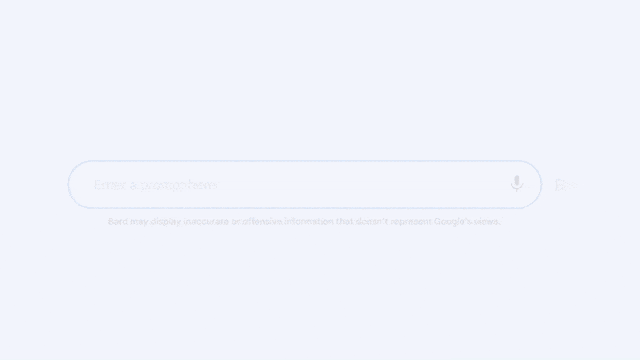
Citations/Links to Publishers Are Hard To Come By
It is hard to find sources, citations and links in Google Bard but they do come up if you try hard enough. Gary Illyes from Google did say publishers will get traffic from Bard, maybe that is what he meant when we see the “Google it” button in Bard?
I asked Areej Abuali and Billie Geena – who has access already, and she was unable to find Bard giving any links to any source. But some, including in my tests, were able to see some sources and links. Google Bard also has a “Google it” button…
Nope, zero citations in all prompts I’ve done so far
— Areej (@areej_abuali) March 21, 2023
No I can’t see any – I can take a screenrecord for you
— Billie 🦕 (@BillieGeena) March 21, 2023
Actually got a short answer for asking about search engine roundtable – here is all the information it currently provides. pic.twitter.com/332tgKQ3c4
— Billie 🦕 (@BillieGeena) March 21, 2023
If you really work hard to get a citation, you kind of do but not link:
No citations, just a link to “Google it”. Hilarious answer when asked point blank about its sources. pic.twitter.com/98lM4HbB6X
— Simon Lesser (@simonlesser) March 21, 2023
And sometimes not:
I have seen it source the books I asked it for, but the Source was just a Google search for Google Analytics Books pic.twitter.com/SVneA6BP2d
— Marc Agate (@MJAgate) March 21, 2023
When I gained access, I asked Bard why exactly it refused to give sources and citations, it said:
I cannot show you the URL of where I came up with this answer because I did not come up with this answer from a specific URL. I am trained on a massive dataset of text and code, including the Google Search index. This allows me to access and process information from the real world through Google Search and keep my response consistent with search results.
Why Google Bard cannot cite sources, give citations or link to content creators/publishers pic.twitter.com/3hMjKNkEsb
— Barry Schwartz (@rustybrick) March 21, 2023
Oh wait, maybe you can force a link if you try hard enough and specific enough but this is not good enough:
Source link at the bottom of the query:
What is iPullRank? pic.twitter.com/yy1rItzItb
— Garrett Sussman ☕️🔎 (@garrettsussman) March 21, 2023
I am starting to see sources listed now pic.twitter.com/DX1x2g2UCV
— Barry Schwartz (@rustybrick) March 21, 2023
Just not the best experience:
Well, this would suck for me if people used Bard to search for this query. No citations, but when you click “Google it”, Bard provides a link to a fresh SERP where I have the featured snippet. I still can’t believe there aren’t more citations… pic.twitter.com/ho37Dhunjm
— Glenn Gabe (@glenngabe) March 21, 2023
Here is why Google Bard is less likely to provide citations, “Bard is trained on a massive dataset of text and code, and it can be difficult to determine which sources were used to generate a particular answer.”
Why Google Bard is often not going to link or source or provide citations… pic.twitter.com/oP6MWYwc8u
— Barry Schwartz (@rustybrick) March 21, 2023
Early Impressions
The folks at The Verge played with Bard in a limited way and they said:
In a demo for The Verge, Bard was able to quickly and fluidly answer a number of general queries, offering anodyne advice on how to encourage a child to take up bowling (“take them to a bowling alley”) and recommending a list of popular heist movies (including The Italian Job, The Score, and Heist). Bard generates three responses to each user query, though the variation in their content is minimal, and underneath each reply is a prominent “Google It” button that redirects users to a related Google search.
Bard’s interface is festooned with disclaimers to treat its replies with caution
As with ChatGPT and Bing, there’s also a prominent disclaimer underneath the main text box warning users that “Bard may display inaccurate or offensive information that doesn’t represent Google’s views” — the AI equivalent of “abandon trust, all ye who type here.”
As expected, then, trying to extract factual information from Bard is hit-and-miss. Although the chatbot is connected to Google’s search results, it couldn’t fully answer a query on who gave the day’s White House press briefing (it correctly identified the press secretary as Karine Jean-Pierre but didn’t note that the cast of Ted Lasso was also present). It was also unable to correctly answer a tricky question about the maximum load capacity of a specific washing machine, instead inventing three different but incorrect answers. Repeating the query did retrieve the correct information, but users would be unable to know which was which without checking an authoritative source like the machine’s manual.
Billie Geena gained access to Bard right away, here are some of her tweets:
I got early access to Bard so the first thing I had to do is ask about myself
And ok this is exciting pic.twitter.com/qAmR0rExdO
— Billie 🦕 (@BillieGeena) March 21, 2023
I’m finding playing with this really exciting – however it does now cite it’s sources. But it’s very easy to switch your question into a Google search
— Billie 🦕 (@BillieGeena) March 21, 2023
Areej Abuali said OpenAI’s ChatGPT beats Google Bard in her early tests:
Okay, I spent 5 minutes on Bard and ChatGPT clearly wins – no thread, no analysis, nothing, that’s it, that’s the tweet.
— Areej (@areej_abuali) March 21, 2023
Some more tweets in the wild:
Google Bard can’t write a function that adds two numbers pic.twitter.com/t1B1WHRPrr
— Jane Manchun Wong (@wongmjane) March 21, 2023
Oh hey, Google Bard. pic.twitter.com/w1ENWRObAM
— Lance Ulanoff (@LanceUlanoff) March 21, 2023
Hacking #Google #Bard pic.twitter.com/5pS7sIXtRH
— Justin Chen (@ch3njus) March 21, 2023
Well, ChatGPT and MidJourney don’t have anything to worry about, anytime soon. Ladies and Gentleman, I give you, Googles Bard! 😂🤦♂️ pic.twitter.com/KFSwvZV4GT
— Lee リー (@YodasMyDad) March 21, 2023
Hmm I take it back. GPT3.5 is still much better than Bard. @GoogleAI #bard #chatgpt
I asked Bard and ChatGPT-3.5 to derive time dilation. Bard doesn’t quite derive it whereas GPT-3.5 went into all the details, and got the answer correct. pic.twitter.com/tGXrHpQV55
— Ben Athiwaratkun (@ben_athi) March 21, 2023
Bard vs ChatGPT4, milk and a hat in a safe on a hill. pic.twitter.com/DXv2VDcKL3
— Andrew Riley (@_happyKC) March 21, 2023
Google bard can’t code or even hold context of previous conversations..
Guess ChatGPT still has no serious competition lol #bard #Google #ChatGPT #googlebard pic.twitter.com/i9PN7id3Uf
— Moe (@MoeX003) March 21, 2023
I guess Google is okay with buying links now? 🙂
— Dean Cruddace (@DeanCruddace) March 21, 2023
Straight from the source ya’ll (as if our Google search liaisons haven’t been saying this forever)#seo #bard pic.twitter.com/sHO0a75Uso
— Danielle Rohe (@d4ni_s) March 21, 2023
My very first use of Bard. What do we think?
Prompt:
“Create an analogy for search engine optimization based on the career of Allen Iverson” pic.twitter.com/SGeYipWRAA
— Garrett Sussman ☕️🔎 (@garrettsussman) March 21, 2023
Local:
I asked #BARD for the best breakfast place near where I live. Gave me three different lists with limited overlap. Interesting. pic.twitter.com/2MQgIYzTTE
— Greg Sterling 🇺🇦 (@gsterling) March 21, 2023
Asked for “handyman in 94118” and again got different lists (one is default) with some overlap. Then I “Googled it” and the results were completely different. None of the Local Pack results appear in the #BARD lists. There are also no URLs in the Bard lists. pic.twitter.com/WrNEeufoc3
— Greg Sterling 🇺🇦 (@gsterling) March 21, 2023
But Bard does not always get it right, like Google said:
But Bard gets it wrong, I never worked with Coca-Cola, Disney, Nike, Oracle, IBM etc – at least not that I know of pic.twitter.com/gOy4vdQbNj
— Barry Schwartz (@rustybrick) March 21, 2023
Can Bard tell you if your content meets EEAT?
interesting pic.twitter.com/q9CBDbcimL
— Barry Schwartz (@rustybrick) March 21, 2023
Run a health and medical site? You’re safe from Bard for now. 🙂 Bing Chat crushes Bard on this one (clearly)… Prompt: “What are the symptoms of strep throat?” Bard can’t answer (at least yet). Bing Chat with a strong answer + citations. Winner: Bing Chat pic.twitter.com/hDgIzjj3aW
— Glenn Gabe (@glenngabe) March 21, 2023
Here is a good comparison tweet:
Google Bard areas for improvement
⚠️ No coding capabilities 🚫👨💻
⚠️ Multi-language not at the level of competitors 🌍
⚠️ Fails on common understanding of the world 👶See below prompts and comparisons with Bing, GPT-4 and GPT-3.5. #google #bard #workinprogress pic.twitter.com/Bax9jNo6t5
— ᐸGerardSans/ᐳ🤣🇬🇧 (@gerardsans) March 21, 2023
And yes, Bard is a kiss up:
— Greg (@PPCGreg) March 21, 2023
The most important feature:
Most important feature of Google Bard for me… pic.twitter.com/40VNGSN2Hr
— Barry Schwartz (@rustybrick) March 21, 2023
I am looking forward to testing out Bard and letting you know what I find, until then, we wait. You can read the other coverage on this announcement on Techmeme.
Forum discussion at Twitter and WebmasterWorld.
SEARCHENGINES
Daily Search Forum Recap: April 25, 2024
Here is a recap of what happened in the search forums today, through the eyes of the Search Engine Roundtable and other search forums on the web.
The Google March 2024 core update is still rolling out and the SEO chatter is super heated despite the tools calming. Google Ads API version 16.1 is now out. Google’s John Mueller says splitting and merging sites takes longer than normal site moves for Google to process. Google updated its favicon documentation. And a scathing report on how Google executive Prabhakar Raghavan killed Google Search.
Search Engine Roundtable Stories:
-
Google March Core Update Stilling Rolling Out & Heated SEO Chatter Continue
Over the past few days, while I was offline, the SEO chatter around the Google search ranking volatility continued to be super heated. The Google tracking tools seemed to calm down a bit, but the chatter is still very heated. This is all while the Google March 2024 core update is still rolling out 51 days later. -
Report: How Prabhakar Raghavan Killed Google Search
Ed Zitron wrote a piece named The Man Who Killed Google Search. It goes through in detail how Prabhakar Raghavan, Google’s former head of ads – led a coup so that he could run Google Search, and how an email chain from 2019 began a cascade of events that would lead to him running it into the ground, he said. -
Google Favicon Documentation Adds Rel Attribute Value Definitions
Google has updated its favicon documentation for Google Search to add definitions for each supported rel attribute value in the Google Search favicon documentation. -
Google Ads API Version 16.1 Now Available
Google released version 16.1 of the Google Ads API yesterday. The update includes query assets for Demand Gen, more location service details, more support warnings, Target ROAS bid simulation and more. -
Google: Splitting & Merging Sites Takes Longer Than Normal Site Migrations
Want to scare an SEO? Just tell them they need to manage a site migration. Want to make an SEO faint? Tell them they need to manage to split a site into two or more sites while merging content on those sites. John Mueller from Google said it takes Google longer to process site splits and merges than normal site migrations. -
Google Chefs In Dublin
Here is a photo I found on Instagram of a bunch of chefs at the Google office in Dublin. I am not sure if this was for some event or if Googlers were doing some sort of cooking class but it was a photo that caught my eye.
Other Great Search Threads:
- Interested in AI assistants within YouTube? -> The new experimental “Ask AI” feature in YouTube is pretty cool. Just tap the button and ask any question about the video you’re watching. Note, AI can’t control the video player as of n, Glenn Gabe on X
- What skeleton do you have in your closet?, WebmasterWorld
- Googlebot will crawl from one location (often the US), and if you redirect it based on its location, Googlebot would only see (and index) that country version. It’s better to use something like a banner., John Mueller on X
- I don’t know your sites, but even if the content’s the same, they’re essentially different sites (especially with ccTLDs), so it would be normal for a migration to affect them differently (and this seems to be quite a way back in the meantime)., John Mueller on X
- Search engines recrawl URLs at different rates, sometimes it’s multiple times a day, sometimes it’s once every few months. The verified removal tool is fastest, the public removal tool takes a few days because it needs to verify the URL properly., John Mueller on X
- You are now a Google Search Engineer. How do you fix organic search?, Gareth Boyd on X
Search Engine Land Stories:
Other Great Search Stories:
Analytics
Industry & Business
Links & Content Marketing
Local & Maps
Mobile & Voice
SEO
PPC
- PPC for Retail: Biggest Trends, Challenges, & Strategies for Success, WordStream
- Unlocking Success with Performance Max Campaigns, Location3 Media
- Discovering and Diagnosing a Google AdSense Rendering Bug, Merj
- Google delays third-party cookie demise yet again, Digiday
- How to Find and Use Competitor Keywords, Ahrefs
- Q&A: Promoting your app or game with Apple Search Ads, Apple Developer
- Updates to Healthcare and Medicines Policy (May 2024), Google Advertising Policies Help
- Windows 11 Start menu ads are now rolling out to everyone, The Verge
Search Features
Other Search
Feedback:
Have feedback on this daily recap; let me know on Twitter @rustybrick or @seroundtable, on Threads, Mastodon and Bluesky and you can follow us on Facebook and on Google News and make sure to subscribe to the YouTube channel, Apple Podcasts, Spotify, Google Podcasts or just contact us the old fashion way.
SEARCHENGINES
Google Won’t Change The 301 Signals For Ranking & SEO
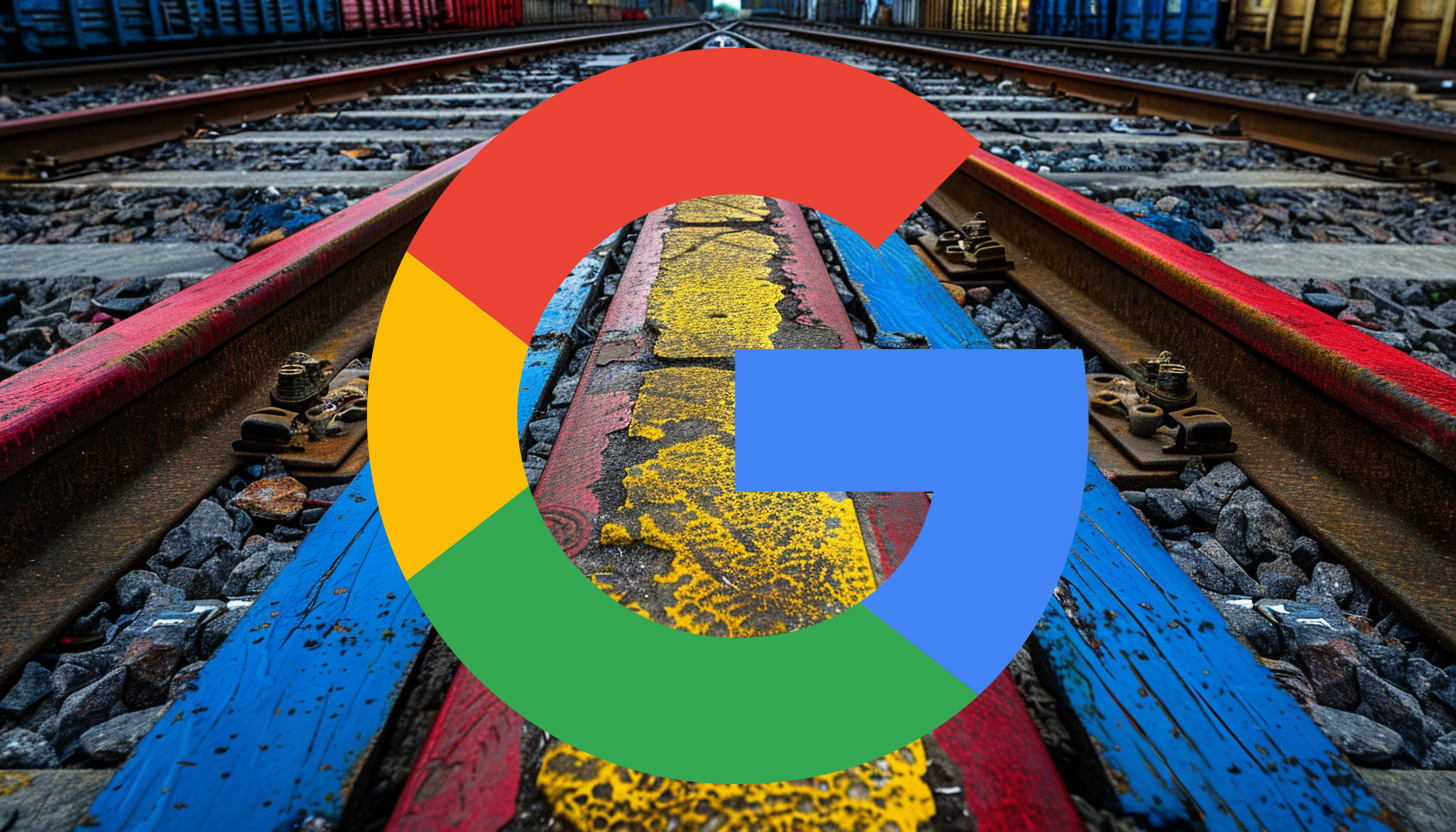
Gary Illyes from Google said on stage at the SERP conference last week that there is no way that Google would change how the 301 redirect signal works for SEO or search rankings. Gary added that it’s a very reliable signal.
Nikola Minkov quoted Gary Illyes as saying, “It is a very reliable signal, and there is no way we could change that signal,” when asked if a 301 redirect not working is a myth. Honestly, I am not sure the context of this question, as it is not clear from the post on X, but here it is:
More from @methode:
– 301 redirect not working is a myth. “It is a very reliable signal, and there is no way we could change that signal”.#SERPConf2024#SERPConf2024International— Nikola Minkov (@n_minkov) April 19, 2024
We’ve covered 301 redirects here countless times – but I never saw a myth that Google does not use 301 redirects as a signal for canonicalization or for passing signals from an old URL to the redirected URL.
Forum discussion at X.
Note: This was pre-written and scheduled to be posted today, I am currently offline for Passover.
SEARCHENGINES
Google Again Says Ignore Link Spam Especially To 404 Pages
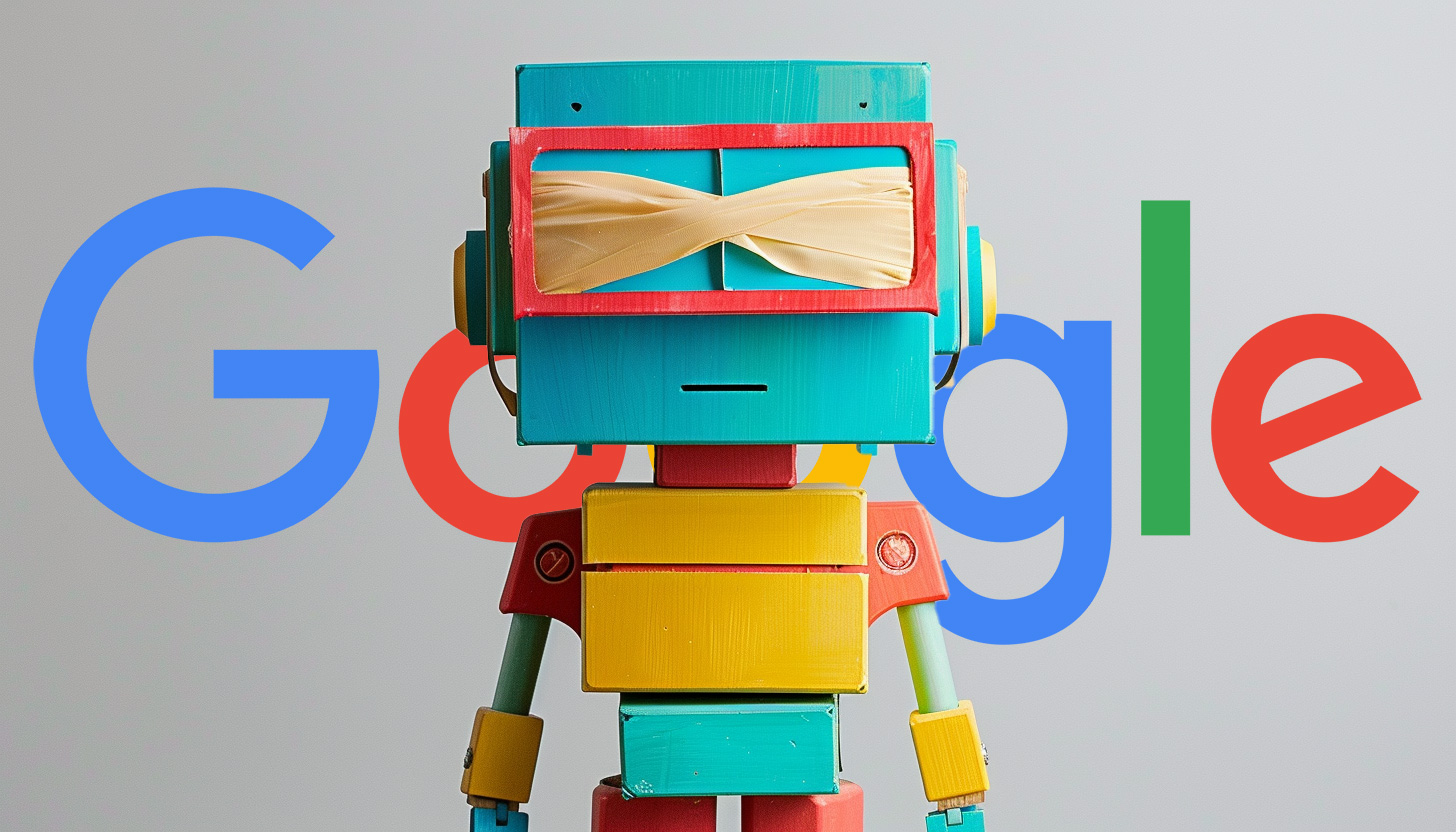
I am not sure how many times Google has said that you do not need to disavow spammy links, that you can ignore link spam attacks and that links pointing to pages that 404/410 are links that do not count – but John Mueller from Google said it again.
In a thread on X, John Mueller from Google wrote, “if the links are going to URLs that 404 on your site, they’re already dropped.” “They do nothing,” he added, “If there’s no indexable destination URL, there’s no link.”
John then added, “I’d generally ignore link-spam, and definitely ignore link-spam to 404s.”
Asking if it would hurt to disavow, after responding with the messages above, John wrote:
It will do absolutely nothing. I would take the time to rework a holistic & forward-looking strategy for the site overall instead of working on incremental tweaks (other tweaks might do something, but you probably need real change, not tweaks).
Earlier this year we had tons of SEOs notice spammy links to 404 error pages, John said ignore them. In 2021, Google said links to 404 pages do not count, Google also said that in 2012 and many other times.
Plus, outside of links to 404 pages, Google has said to ignore spammy links, time and time again – even the toxic links – ignore them. The messaging around this changed in 2016 when Penguin 4.0 was released and Google began devaluing links over demoting them.
Here are those new posts in context:
I’d say add both. Lol
— Jeremy Rivera (@JeremyRiveraSEO) April 11, 2024
Sure. But also, save yourself the work completely :-).
— John 🧀 … 🧀 (@JohnMu) April 11, 2024
Re-reading your initial post – if the links are going to URLs that 404 on your site, they’re already dropped. They do nothing. If there’s no indexable destination URL, there’s no link. I’d generally ignore link-spam, and definitely ignore link-spam to 404s.
— John 🧀 … 🧀 (@JohnMu) April 11, 2024
… but still… is this a dumb idea?
— Rebekah Edwards (@rebekah_creates) April 11, 2024
It will do absolutely nothing. I would take the time to rework a holistic & forward-looking strategy for the site overall instead of working on incremental tweaks (other tweaks might do something, but you probably need real change, not tweaks).
— John 🧀 … 🧀 (@JohnMu) April 11, 2024
And in general, Google says it ignores spammy links, so you should too (not new) but this post from John Mueller is:
I would just ignore them, Google ignores them too. Sometimes they’re just more visible in tools, but that doesn’t mean they’re a problem.
— John 🧀 … 🧀 (@JohnMu) April 18, 2024
And then also on Mastodon wrote about a similar situation, “Google has 2 decades of practice of ignoring spammy links. There’s no need to do anything for those links.”
Forum discussion at X.
Note: This was pre-written and scheduled to be posted today, I am currently offline for Passover.
-

 PPC7 days ago
PPC7 days ago19 Best SEO Tools in 2024 (For Every Use Case)
-
SEARCHENGINES6 days ago
Daily Search Forum Recap: April 19, 2024
-

 WORDPRESS7 days ago
WORDPRESS7 days agoHow to Make $5000 of Passive Income Every Month in WordPress
-

 WORDPRESS5 days ago
WORDPRESS5 days ago13 Best HubSpot Alternatives for 2024 (Free + Paid)
-

 MARKETING6 days ago
MARKETING6 days agoBattling for Attention in the 2024 Election Year Media Frenzy
-

 SEO7 days ago
SEO7 days ago25 WordPress Alternatives Best For SEO
-

 WORDPRESS6 days ago
WORDPRESS6 days ago7 Best WooCommerce Points and Rewards Plugins (Free & Paid)
-

 AFFILIATE MARKETING7 days ago
AFFILIATE MARKETING7 days agoAI Will Transform the Workplace. Here’s How HR Can Prepare for It.


